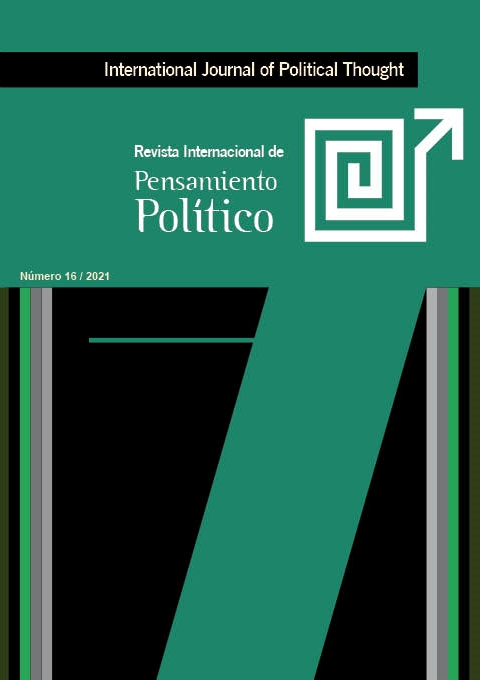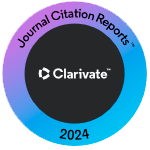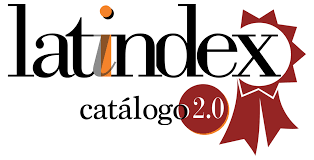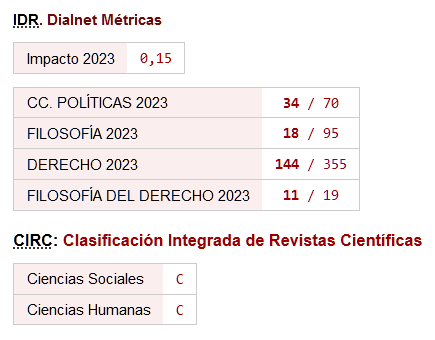Lodovico Dolce nella storia delle idee femministe
DOI:
https://doi.org/10.46661/revintpensampolit.6303Palabras clave:
Lodovico Dolce, comportamento, donne, maritateResumen
Ludovico Dolce (1508/1510-1568), umanista e studioso del Cinquecento, fu tra gli intellettuali che parteciparono alla Querelle des Femmes durante il periodo rinascimentale. Proprio in questo ambito si colloca il suo trattato Dialogo di M. Lodovico Dolce della institution delle donne secondo li tre stati che cadono nella vita humana. L’obiettivo dell’articolo consiste nell’esaminare ed evidenziare le idee di Dolce sulla ‛‛institution della maritataʼʼ esposte nel secondo libro del Dialogo, presentare il profilo femminile proposto e le virtù di cui deve essere dotata una donna coniugata nella società del 16° secolo.
Descargas
Citas
Arriaga Flórez, M. (2008). Le scrittrici marchigiane: un giallo letterario. Studi Umanistici Piceni, Sassoferrato, Istituto Internazionale di Studi Piceni, nº XXVIII, 161-168.
Arriaga Flórez, M., Cerrato, & D., Rosal Nadales, M. (2012). Poetas italianas de los siglos XIII y XIV en la Querella de las mujeres. Sevilla, Arcibel.
Baernstein, P. R. (2006). «Sposa, figlia, sorella e vecchia matre». Invecchiare donna in età moderna, tra demografia e cultura, Storia delle donne, 2, Firenze University Press, 213-230.
Boubara, A. (2020). I ragionamenti di Lodovico Dolce sulla Institution della vergine. Revista De La Sociedad Española De Italianistas, vol. 14, 51-59.
Casagrande, C. (1978). Prediche alle donne del secolo XIII. Milano, Bompiani.
Cerrato, D. (2015). Sorelle di Querelle. Poetesse dell'al-Andalus, trobairitz e poetesse italiane del Duecento e Trecento. Raudem - Revista de Estudios de las Mujeres, vol. 3, 232-251.
https://doi.org/10.25115/raudem.v3i0.629
Cicogna, E. A. (1862). Memoria intorno la vita e gli scritti di Messer Lodovico Dolce, letterato veneziano del secolo XVI. Memorie dell'Istituto Veneto di Scienze, Lettere e Arti, vol. 11, 93-200.
Cosentino, P. (2006). Tragiche eroine. Virtù femminili fra poesia drammatica e trattati sul comportamento. Italique, IX, 65-99.
https://doi.org/10.4000/italique.108
Cox, V. (1992). The Renaissance dialogueː literary dialogue in its social and political contexts, Castiglione to Galileo. Cambridge, Cambridge University Press.
https://doi.org/10.1017/CBO9780511895715
Cox, V. (2008). Women's Writing in Italy, 1400-1650. Baltimore, Johns Hopkins University Press.
Del Nero, V. (2006). Problemi aperti sul 'De Institutione Foeminae Christianae' Di Juan Luis Vives. Bruniana & Campanelliana, vol. 12, no. 1, Accademia Editoriale, 11-23.
Dionisotti, C. (1970). Dolce, Lodovico. In Enciclopedia dantesca, Roma, Istituto dell'Enciclopedia, 534-535.
Dolce, L. (1545). Dialogo di M. Lodovico Dolce della institution delle donne secondo li tre stati, che cadono nella vita humana. Venezia, Gabriele Giolito de' Ferrari.
Fahy, C. (1956). Three early Renaissance Treatises on Women. Italian Studies, 11, 30-55.
https://doi.org/10.1179/its.1956.11.1.30
Matthews Grieco, S. F., Brevaglieri, S. (Cur.). (2001). Monaca, moglie, serva e cortigianaː vita e immagine delle donne tra Rinascimento e Controriforma (Lunaris), Firenze, Morgana.
Romei, G. (1991). Dolce, Lodovico. In Dizionario Biografico degli Italiani, Roma, Istituto dell'Enciclopedia Italiana, 399-405.
Sanson, H. (2015). Lodovico Dolce, Dialogo della instituzion delle donne secondo li tre stati che cadono nella vita umana (1545), Critical Texts, 30, Cambridge, MHRA.
Sanson, H., Lucioli, F. (2016). Conduct Literature for and about Women in Italy, 1470-1900: Describing and Prescribing Life. Paris, Classiques Garnier.
Sberlati, F. (1997). Dalla donna di palazzo alla donna di famiglia: Pedagogia e cultura femminile tra Rinascimento e Controriforma. I Tatti Studies in the Italian Renaissance, vol. 7, 119-174.
https://doi.org/10.2307/4603703
Terpening, R. H. (1997). Lodovico Dolce. Renaissance Man of Letters. Toronto, University of Toronto Press.
Descargas
Publicado
Cómo citar
Número
Sección
Licencia
Derechos de autor 2022 Ada Boubara

Esta obra está bajo una licencia internacional Creative Commons Atribución-NoComercial-CompartirIgual 4.0.
Política de acceso abierto
Se permite el acceso libre y abierto de cualquier interesado a todos los contenidos de los números de la revista, sin costo alguno, pudiendo imprimir y trasladar todos los artículos, con la única condición de precisar la fuente y la autoría.
La revista: a) no cobra a las autorías costes por el procesamiento de los artículos ni por el envío de los mismos, b) mantiene el copyright para los autores sin restricciones, c) facilita a los autores conservar sus derechos de publicación sin limitaciones.
La Revista Internacional de Pensamiento Político es una obra original del Laboratorio de Ideas y Prácticas Políticas de la Universidad Pablo de Olavide. Todos los artículos incluidos en la Revista son obra original de sus respectivas autorías. Esta Revista se ofrece libremente a la comunidad científica y académica sin coste alguno y libera los contenidos de acuerdo a la licencia "Reconocimiento-NoComercial-CompartirIgual 4.0 CC BY-NC-SA" del proyecto Creative Commons dispuesta en la siguiente url: https://creativecommons.org/licenses/by-nc-sa/4.0/legalcode
Si deseas traducir o compilar alguno de los artículos aquí disponibles, por favor, ponte en contacto













